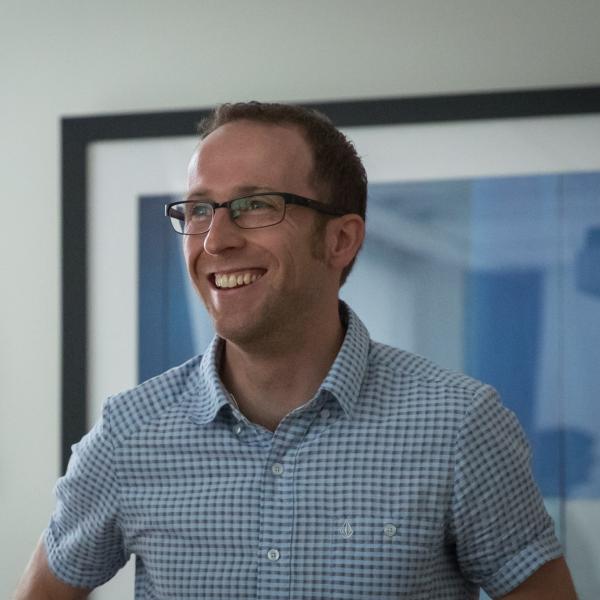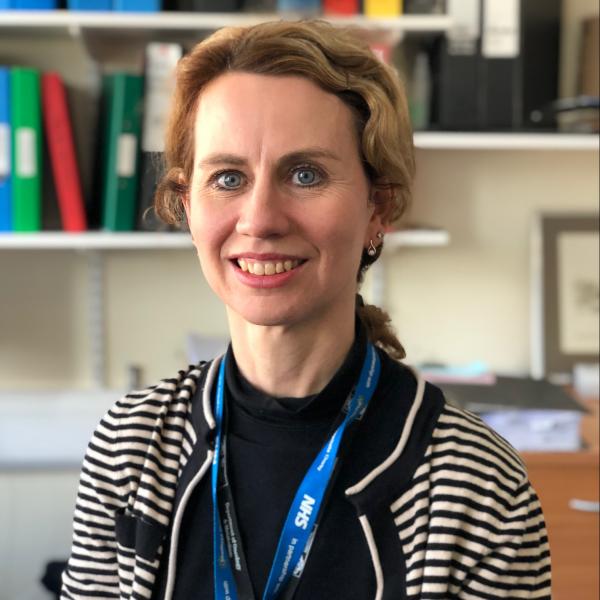YCR Connects
Welcome to the Yorkshire Cancer Research (YCR) Catalyst for Innovation in Cancer Care and Treatment in บ๙ยซำฐาต (YCR CONNECTS) website.
Our mission:
To improve cancer outcomes in Yorkshire and beyond through research and innovation.
Aims:
- To develop and implement new cancer treatments
- To improve cancer outcomes in บ๙ยซำฐาต and ensure patients live longer and enjoy better quality of life
- To integrate the many existing facets of world leading cancer research in บ๙ยซำฐาต into patient focused innovations in cancer care
- To attract high quality researchers and cancer specialists to บ๙ยซำฐาต
- To promote increased external investments into cancer research in บ๙ยซำฐาต
- To train the academic workforce of the future for cancer research and care in บ๙ยซำฐาต
- To build further cancer research collaborations within Yorkshire and beyond.
Key components:
Our current priority in บ๙ยซำฐาต is focused on increasing our critical mass of high quality clinical and translational cancer researchers. This is essential to strengthen our capabilities to develop new treatments for our patients, attract investment from grant funding bodies and industry and compete internationally in our specialist areas of expertise.
Priority themes:
- Lung Cancer
-
Lead: Professor Sarah Danson with Professor Angela Cox, Professor Jim Wild and Dr Matthew Hatton
- Early diagnosis
- Novel imaging
- Early and late trials
Stratified medicine for early diagnosis and treatment monitoring
Our Fellowships complement the current YCR strategy for "novel early diagnosis tools" and new clinical interventions". They have the potential to translate findings into clinical practice within 5 years and play a pivotal role in improving lunch cancer survival rates for patients in Yorkshire and beyond. Liquid biopsy-based biomarker studies based on the utility of circulating tumour DNA (ctDNA) as a novel early diagnosis, disease stratification and monitoring tool for the basis of such a programme of research.
Functional lung imaging
The บ๙ยซำฐาต Lung MRI research group is world leading in the development of functional imaging methods for the assessment of lunch disease. This track record was recognised recently with the MRC infratructure award of ยฃ7.5M for the POLARIS (Pulmonary, Lung and Respiratory Imaging บ๙ยซำฐาต) project. In collaboration with Weston Park Hospital we have pioneered the clinical application of these functional multi-modality imaging techniques in lung cancer patients in the assessment and planning of radiotherapy.
Dr Bilal Tahir is the non-clinical imaging scientist conducting research in the area of functional imaging of cancer with an initial focus on clinical applications in lung.
- Improving clinical outcomes in common malignancies
-
Lead: Professor Janet Brown with Professor Sarah Danson, Professor Jim Catto, Dr Andy Chantry, Professor James Chilcott, Dr Paul Tappenden, Professor Ingunn Hole and Professor Claire Lewis
- Clinical trials
- Prevention of metastases
- Stratified medicine
Building on our existing NIHR, YCR, WPHCC and ECMC early phase infrastructure, we will conduct late phase (phase III and IV) clinical trials in common cancers and priority research areas with a particular focus on trials that seek to increase cure and long term survival over palliation of late stage far advanced and refractory disease.
This is complemented by early phase trials providing new therapeutic strategies using the ECMC facilities, University of บ๙ยซำฐาต drug pipeline, alongside commercial and non-commercial collaborations.
Clinical Trials
บ๙ยซำฐาต has a strong track record of clinical cancer research and has led on a range of national and international clinical trials across multiple disease areas. The nature of clinical research is changing with an increasing emphasis on molecularly targeted treatments and immune modulation in place of classical chemotherapy approaches as well as the integration of novel imaging and analytical technologies to optimise treatment. This requires the availability of a range of disciplines including medical statistics, molecular pathology, imaging expertise and health economics to work alongside the clinical academic oncologists.
Prevention of metastases
In this priority area, we concentrate on therapeutic strategies to prevent metastasis and thus provide a greater opportunity to improve survival and cure rather than palliative strategies for advanced disease with limited scope for reducing cancer mortality. We have an international reputation in this area of research with a major focus on the biology and prevention of bone metastases and the role of the tumour microenvironment. We also utilise state of the art technology for earlier diagnosis of metastatic disease, to enable targeted treatment selection to prevent matastasis and improve monitoring of treatment efficacy.
Stratified medicine
We integrate existing biomarker expertise to improve selection of therapy and enable more cost effective and appropriate use of both current and emerging treatments.
- Improved health and well being with and beyond cancer
-
Lead: Professor Janet Brown with Professor Diana Greenfield, Dr Derek Rosario and Dr Sam Kyeremateng
- Late effects
- Living with cancer
- Palliative care and end-of-life care
There are around 200,000 people alive in Yorkshire with a diagnosis of cancer and this number is projected to increase to 340,000 over the next 15 years. This will potentially result in a huge burden of disease and treatment-related morbidity with substantial adverse effects on health and well being. The increase in the elderly population will pose special problems and will require new approaches to management of frailty and tolerance of standard treatment regimens in elderly patients with cancer. บ๙ยซำฐาต is well-placed to meet these challenges, with a depth of internationally recognised expertise in late effects, living with cancer and end of life care. Suitably targeted research will be critical, including the development of improved links with primary care and social care, where บ๙ยซำฐาต has expertise at บ๙ยซำฐาต Applied Health and Related Research (ScHARR) and involvement with the .
- Early diagnosis and access to treatment
-
Lead: Professor James Chilcott with Dr Paul Tappenden
- Health economic modelling
- Public health/primary care
To help people avoid, survive and cope with cancer through the development of tailored intervention strategies to target communities which are at risk of late diagnosis.
Governance Board
Our Governance Board is made up of the following members of University and YCR staff:
- Professor Chris Newman (Interim Vice President & Head of Faculty Medicine, Dentistry & Health)
- Professor Allan Pacey (Head of Department, Department of Oncology & Metabolism)
- Professor Sarah Danson (YCR Connects Lead, Department of Oncology & Metabolism)
- Mrs Karen Longden (Head of Finance, Faculty of Medicine, Dentistry & Health)
- Dr Kathryn Scott (Chief Executive, Yorkshire Cancer Research)
- Dr Stuart Griffiths (Director of Research & Serices, Yorkshire Cancer Research)
- Jo Mornin (Director of Finance & Corporate Services, Yorkshire Cancer Research)





